MEDIA FOR CHANGE NETWORK
Trees for Global Benefits: “Climate neutral” burgers in Sweden. Starvation in Uganda
Published
2 years agoon
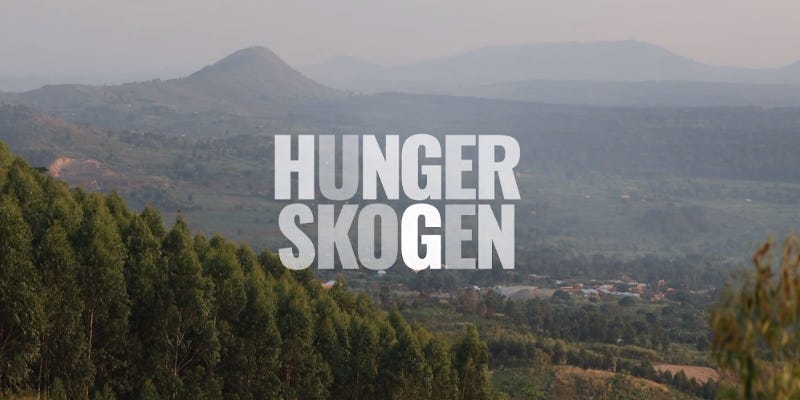
The Swedish fast food chain Max Burgers AB claims to have had more than three million trees planted in the tropics. “Planting trees is an effective way to remove carbon dioxide,” the company states on its website. “Since 2018, MAX has been funding trees that capture the equivalent of 110% of our entire value chain’s greenhouse gas emissions.”
But a new investigation by Staffan Lindberg in the Swedish newspaper Aftonbladet reveals that some of the farmers in Uganda who planted trees for Max Burgers carbon credits are now cutting down the trees and making them into charcoal. The farmers faced starvation, because the trees were planted on their farmland.
Max Burgers buys carbon credits from a project in Uganda called Trees for Global Benefits, that has been running since 2003. The project is managed by a Ugandan organisation called Ecotrust.
Under the scheme, farmers plant trees on their land and receive income from the sales of carbon credits. It is certified under the Plan Vivo standard.
According to the Plan Vivo website,
The project operates as a market-based solution that reduces unsustainable exploitation of forest resources and the decline of ecosystem quality, while diversifying and increasing incomes for rural farmers and their families.
In 2013, the project won an award from SEED, which was founded by UNEP, UNDP, and IUCN. In a video produced by SEED, Pauline Nantongo Kalunda, the executive director of Ecotrust, says, “The main objective of this enterprise is to combine carbon sequestration activity with livelihoods improvements.”
Kalunda is on the Board of Trustees of Plan Vivo.
The hunger forest
Lindberg calls the Ecotrust project the “hunger forest”. Ecotrust persuaded farmers to plant trees on land where they grew crops. But the farmers had only small areas of land. When the trees took over the land, the farmers could no longer grow food for their families.
The Aftonbladet investigation is not the first critique of the Trees for Global Benefits project. In 2017, Elina Andersson and Wim Carton from Lund University wrote a study that highlights problems with the project. “Our study shows that there is widespread confusion among farmers about what the project is basically about,” Andersson and Carton write.
Farmers did not know who was buying the carbon credits.
One farmer said,
They do not have many benefits, these carbon trees. They are not easily grown and they take time. I had to replace so many of them because they dried out. They started to dry from the top and then they refused to grow. I wouldn’t plant these trees again, but rather eucalyptus and maybe some fruit trees.
Farmers had to pay the full cost of replacing damaged and dead trees, regardless of whether the trees were damaged by fire, vandalism, insects, or wild animals.
Andersson and Carton write about the “flawed basis on which the local population had the opportunity to make informed decisions regarding participation” in the tree planting project.
Contracts were written in English which few of the villagers speak.
Almost all the farmers they spoke to said they did not know how much compensation they would receive from the project. One farmer told Andersson and Carton that,
People planted trees before they knew how much they would get. And they did not negotiate the price with the buyers. So they don’t know if they got all their money, or if they just got half of it. If you tell prices in terms of percentage, how can an old man understand? They are not giving the correct information. transparency is lacking. Most people don’t even know what they are selling.
Lack of land is a major problem in the project area, Andersson and Carton note, particularly among the poorest households.
“It cannot be ruled out that,” they write, “through the project, poor small farmers risk being locked into a type of land use for a long time that reduces their ability to adapt to deal with temporary crises as well as long-term changes, which in the worst case can mean long-term negative effects on their life situation.”
They also note that payments from Ecotrust are often greatly delayed or not received at all.
In 2019, an article in the Swedish newspaper Dagens Nyheter took a critical look at the Trees for Global Benefits project.
And in 2022, Global Forest Coalition published a report about the project with the title, “A case study on the failures of carbon offsetting”. The researchers spoke to more than 100 community members. They write that,
The clear message from all communities was that the project was not delivering its promised benefits, and participants were growing increasingly bitter and desperate.
The lead author of the report was David Kureeba, a programme officer with Friends of the Earth Uganda.
The report concludes that the Trees for Global Benefits project “is one of a growing number of global greenwashing exercises that are not only failing to reduce the amount of carbon being released into the atmosphere but also inflicting adverse environmental, social, and economic impacts on the local communities involved”.
“A chance to earn money”
Aftenbladet’s journalist Staffan Lindberg and photographer Niclas Hammarström travel to the project area in Uganda. There they find farmers cutting down the trees, to sell them as charcoal.
A farmer called Samuel Byarugaba tells Lindberg that a man from Ecotrust turned up eight years ago. He said Ecotrust could offer the family a chance to earn money.
Samuel signed the contract despite having only two acres of land, and the fact that all his land was being used to grow food. He didn’t receive a copy of the contract. The man from Ecotrust later showed him how to plant the trees, seven metres apart. That was the only education he received about tree planting.
After three years, the trees formed a canopy over the food crops. The trees took the light, the water, and the nutrients. Samuel’s sweet potatoes and bananas died. Nothing could grow under the trees. Samuel, his wife, and 15 children and grandchildren were without food.
He tells Lindberg,
“I used to be something called a model farmer. People came to me to learn about farming and I was proud to show our farm. We had enough food to eat our fill and were able to sell the excess. Now everything disappeared.”
The first payment from Ecotrust should have come in the first year. When it arrived, one year later, it was equivalent to a little more than US$100. Enough for a couple of weeks of food.
Samuel has only received two more payments of the same amount since then. He has been forced to beg from relatives for his family to survive.
Lindberg reports that now he’s cutting all the trees down. He will plant bananas and sweet potatoes again.
“My children have no food”
Rosset Kyampaire is a widow, and mother of four. She has only one acre of land. Ecotrust still persuaded her to sign the contract.
She planted 200 trees on her land. After two years, the beans and cassava withered. After three years, she had no harvest at all.
After eight years, she has received no money from Ecotrust. Instead she got excuses: “This is how white people work,” and “Have patience,” and “It will arrive later this year.”
To survive, she has to work as a day labourer on other people’s farms. She earns less than US$1.5 a day. It’s not enough.
“I am so stressed,” Rosset tells Lindberg. “My children have no food.”
She has already started cutting down the trees. “It’s my only chance,” she says.
Where is the food? Look around, where is it?
Jorum Baslina is a local leader in the village of Kigaaga. He also joined the project. “Ecotrust just wants to grow as many trees as possible,” he tells Lindberg. “They urge us: plant more!”
Jorum says there is no transparency. Ecotrust did not tell the farmers how much they would receive, or why the money has not been paid. He shows Lindberg a contract, written in English, and says that,
Many here can barely write their own names. And almost no one knows English. Why don’t we get the agreement in our own language? And why doesn’t it say how much we should get?
Jorum has acted as a spokesperson for other people involved in Ecotrust’s project. He says that of the 100 farmers he’s in contact with, only six or seven are happy with the project and they had unused land to plant on and were the first to join.
“The rest of us are much poorer than before,” Jorum tells Lindberg. “Almost everyone has started cutting down the trees or is planning to do so. Where is the food? Look around, where is it?”
“We are starving”
Ecotrust came to Herbert Rukundo’s farm nine years ago and promised that the trees would bring money, every year. Herbert tells Lindberg that,
We dreamed of being able to keep the children in school and maybe rebuild the house a little so that it was beautiful, even buying a motorcycle to drive to church. Instead we were forced to starve. Now we’ve chopped it all down and turned it into charcoal.
Last year, Herbert cut down all his trees. Not long afterwards, the coordinator from Ecotrust visited his farm and accused Herbert of breach of contract. The Ecotrust coordinator threatened that if Herbert did not replant all the trees he would have to face the police and prison.
Hubert replied that as things are, “We are starving.”
Hubert tells Lindberg that Ecotrust didn’t want to listen. “Now I can’t sleep at night,” he says.
Mauda Twinomngisha wanted to send her three daughters to university. “I wanted them to have a better life than me and my husband had. It was for their future that we signed up,” she tells Lindberg.
But when the food disappeared, she had to take the girls out of school. All three have been married off as child brides, aged 14, 15, and 16.
Two years ago, Mauda decided to cut down the trees. “Then a woman from Ecotrust came here,” she tells Lindberg. The woman was very angry. She told Mauda to remove her bananas and plant trees. “But we had no choice,” Mauda says.
Wilson Akiiza and Violet Mbabaazi planted 600 trees on their three acres of land. “Now we have no food”, Wilson tells Lindberg. “Ecotrust never explained how much money I would get, only that it would come every year. Now I am the coordinator for 89 farmers who are part of the project. Nobody has food.”
Robert Sunday has also cut down all his Ecotrust “carbon trees” and made charcoal with them. With the money from the charcoal, he will buy cassava plants.
In the 10 years since he planted the trees, he received two payments, of about US$50 each.
He has only one acre, from which he used to feed 10 people. “Ecotrust must have understood that the family would never make it,” Lindberg writes. “Nevertheless, they were pushed to plant.”
Auditor: “Food security not an issue”
Aftonbladet’s research team visited nine farms in two districts, Hoima and Kikuube. All of them planted trees for Ecotrust on land that they previously used for growing crops. Hunger was the result.
One family received no money at all. All of the others received fewer payments than the contract promised. Ecotrust has not explained to any of them why the money has not been paid out.
None of the nine families has received enough money to cover the cost of food lost to the “carbon trees”.
None of the families could explain how carbon trading works, who bought the carbon credits, or how much money they should have received. Most of them did not receive a copy of the contract they signed.
Two of the families told Lindberg that they were forced to marry off underage daughters.
One eight of the farms, all or some of the trees have now been cut down to make way for food crops. The timber has been sold as charcoal.
Lindberg acknowledges that the Aftonbladet research is not comprehensive. Several thousand farmers are involved in the project, spread over a large area.
But David Kureeba, the lead author of Global Forest Coalition’s 2022 report about the project, tells Lindberg that the problem is widespread and systemic. “We are 45 million people crowded in Uganda,” Kureeba says, “and the vast majority are already living on the verge of starvation. They have no land to spare.”
The Global Forest Coalition report is based on interviews with more than 100 farmers. That report came out 18 months ago. “Since then the situation has worsened further,” Lindberg writes. “Why haven’t those responsible reacted?”
Under Plan Vivo’s rules, the project has to be inspected every six years. The most recent audit was in 2019, carried out by Environmental Services, Inc, a US-based company.
The lead verifier was Guy Pinjuv, who has since moved on to become Senior Advisor for Carbon and MRV (Measurement, Reporting, and Verification) at Conservation International.
A 2017 article describes Pinjuv’s US$600,000 house that he built in Nevada on a one acre plot of land that he bought for just US$150,000 in 2014. In the article, Pinjuv describes his work:
“If someone wants to slow down deforestation, I’m the guy who goes and checks to make sure they calculated everything correctly. And if there’s a tribe there, I’m the guy who goes and meets the chief and makes sure they’re not planning a revolution . . . that sort of stuff.”
The 2019 Environmental Services audit report states that, “In general food security does not appear to be an issue and project activities are maintaining or increasing food production.” There is no mention of the systemic hunger that, as Lindberg writes, “seems to be integrated into the core of the project”.
“Africa’s poor, who did the least to cause the climate crisis, will pay the price when we have to change,” Lindberg writes.
Lindberg highlights the inequity of the situation. “At Swedish hamburger restaurants, guests order from climate-neutral menus. In the hunger forest, the children wait in vain for food.”
Source: reddmonitor.substack.com
Related posts:
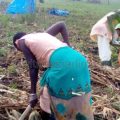
 Uganda is Getting 3 Million New Trees
Uganda is Getting 3 Million New Trees
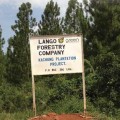 Sweden postpones carbon payment to Uganda tree farm where locals have been evicted
Sweden postpones carbon payment to Uganda tree farm where locals have been evicted
 Uganda reverses forest destruction by inviting in … loggers
Uganda reverses forest destruction by inviting in … loggers
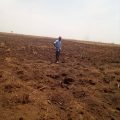 Starvation is rooming in Kiryandongo district as families count losses after missing the seventh planting season consecutively to a multinational.
Starvation is rooming in Kiryandongo district as families count losses after missing the seventh planting season consecutively to a multinational.
You may like
MEDIA FOR CHANGE NETWORK
Indigenous communities’ complaint against World Bank-linked Nepal Cable Car Project declared eligible for investigation.
Published
14 hours agoon
February 5, 2026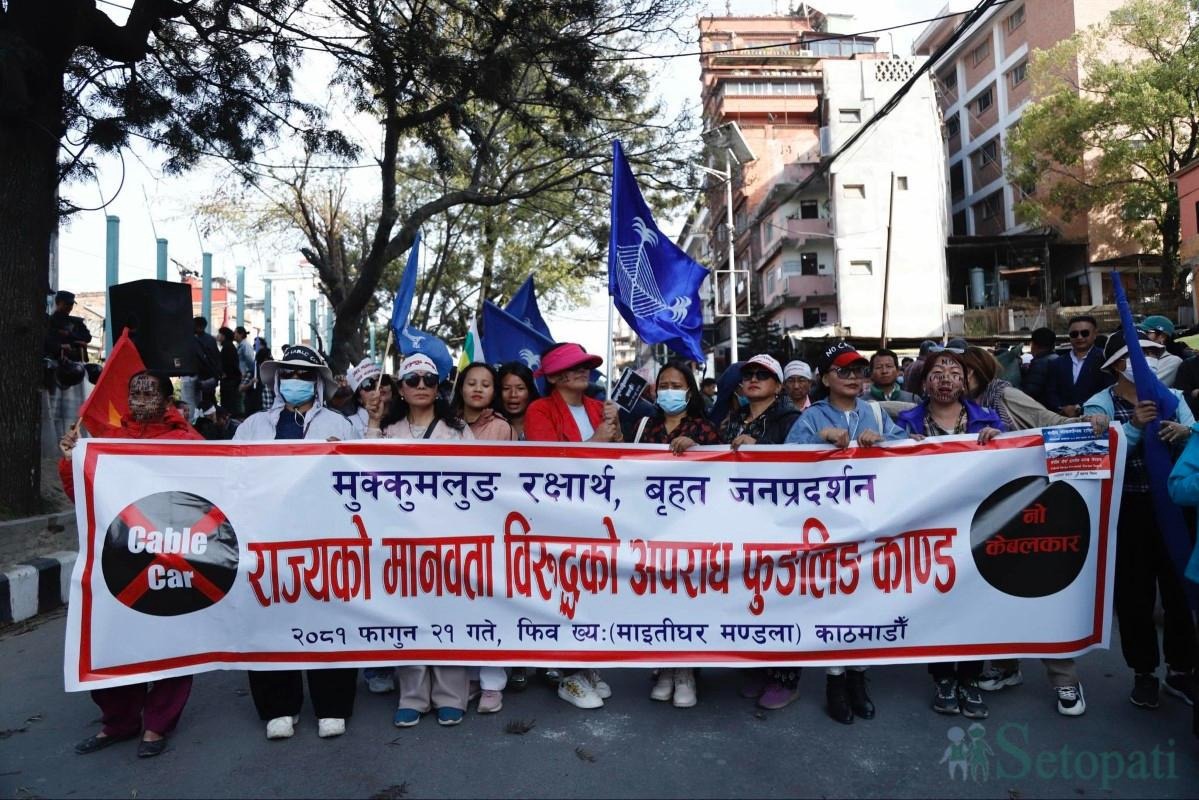
By Witness Radio team
Indigenous Yakthung (Limbu) communities in eastern Nepal have fought hard for recognition after the World Bank Group’s accountability mechanism acknowledged a complaint about rights violations, underscoring their ongoing struggle to protect their land and culture.
The Compliance Advisor Ombudsman (CAO), the independent watchdog of the World Bank Group, accepted the complaint for further assessment and formally registered the case in December 2025. The decision clears the way for a potential mediation process or a full compliance investigation into whether the project breached the IFC’s environmental and social safeguard standards.
In August 2025, Indigenous Yakthung leaders, supported by lawyers and civil society organizations, filed a complaint against the IFC’s advisory support to IME Group for the $22 million Pathivara (Mukkumlung) cable car project in Taplejung District. This filing marks a critical step in holding the project accountable for alleged rights violations and environmental harm.
The cable car is being constructed on Mukkumlung Mountain, a sacred ancestral landscape central to the Yakthung people’s spirituality and Identity, risking irreversible damage to their cultural heritage and Identity.
According to the complainants, construction has already resulted in the felling of more than 10,000 trees in and around the Kanchenjunga Conservation Area, threatening habitats of endangered species such as red pandas, snow leopards, and Himalayan musk deer, underscoring the project’s severe environmental consequences.
“The reason the Complainants and their advisors seek to engage with the CAO is because of the social and environmental harms caused by one of the cable car projects in particular, the Pathivara project. This cable car project has severe impacts on one of the most sacred sites of the Limbu (Yakthung) Indigenous Peoples, including their forests, flora, fauna, heritage (tangible and intangible), and Mukkumlung mountain. The Pathivara project has been imposed on the local Indigenous communities without their Free, Prior, and Informed Consent (FPIC), and has proceeded to destroy their lands, forests, sacred sites, and livelihoods. When the people protest, they have been met with extreme violence and repression by security forces.” The community complaint submitted to the Ombudsman in August 2025 read.
Between August 2022 and July 2024, the IFC provided advisory services to IME Group related to four cable car projects in Nepal, including the Pathivara project. The complainants allege that the IFC failed to ensure that its Environmental and Social Performance Standards, particularly those protecting Indigenous Peoples, were applied.
“The cable car project is tantamount to cultural genocide of the Limbu nation in violation of our rights guaranteed in Nepal’s constitution, the Treaty of 1774 with the Gorkha kingdom, and the UN Declaration on the Rights of Indigenous Peoples,” said Advocate Shankar Limbu, Vice-Chair of LAHURNIP.
Community members say they were unaware of IFC’s involvement until July 2024, nearly two years after construction began, due to the delayed public disclosure of the advisory support.
Accordingly, the complaints stated that the project did not meet the IFC Performance Standards, including failures to assess and manage project impacts, conduct land acquisition, and address involuntary resettlement, among others.
“The IFC’s inability to ensure its client integrated the Performance Standards into the implementation of its plan for delivering cable car projects around Nepal has led to severe breaches of the protections that were supposed to safeguard vulnerable and marginalized communities. Today, Indigenous Limbu communities are being beaten, shot at, arrested, and terrorized for trying to defend their land and way of life,” the community complaints read.
Although the IFC exited the advisory role in 2024, it continues to invest in Global IME Bank, Nepal’s largest commercial bank and a core company within the IME Group. Over the past decade, the IFC has provided more than $50 million in financing to the conglomerate, along with a $500 million trade finance guarantee, which critics say gives the institution ongoing leverage and responsibility.
In its eligibility determination, the CAO found that the complaint met the required criteria, including a plausible link between IFC-supported activities and the alleged environmental and human rights harms. The case has now entered a 90-day assessment phase, during which the CAO will consult with the affected communities, the IFC, and the company involved.
At the end of the assessment, the parties may choose to engage in dispute resolution through mediation or proceed to a full compliance investigation examining whether the IFC failed to follow its own safeguard policies.
The advocates representing the communities welcomed the CAO’s decision.
“We welcome the fact that the CAO has found this complaint eligible, and look forward to working with investigators to uncover how things went so badly wrong. The IFC is currently reviewing its Performance Standards and must learn lessons on consultation, safeguarding cultural heritage and biodiversity, respecting Indigenous Peoples’ rights, and protecting them against retaliation,” Kate Geary, Programme Director at Recourse, one of the organizations that supported the communities in the complaint, reveals.
Further, their appeal is for the CAO to handle the case with utmost urgency. “The CAO investigation into the complaint against the cable car project should move swiftly to remedy ongoing impacts of the project, including retaliations against the local communities,” added Advocate Shankar Limbu.
Indigenous leaders are demanding an immediate halt to construction, the withdrawal of security forces from the area, the release of all IFC-related project documents, and an independent investigation into alleged human rights abuses, urging urgent action to protect their rights and environment.
Related posts:
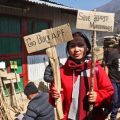
 CSOs call for meaningful changes in the World Bank’s Dispute Resolution Service to foster access to justice for project-affected communities.
CSOs call for meaningful changes in the World Bank’s Dispute Resolution Service to foster access to justice for project-affected communities.
 The World Bank Must Be Held Accountable for Harm Inflicted on Tanzanian Communities by Tourism Project
The World Bank Must Be Held Accountable for Harm Inflicted on Tanzanian Communities by Tourism Project
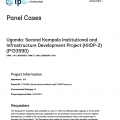 Witness Radio – Uganda and partners welcome a public acknowledgment of the complaint lodged before the World Bank’s Inspection Panel.
Witness Radio – Uganda and partners welcome a public acknowledgment of the complaint lodged before the World Bank’s Inspection Panel.
MEDIA FOR CHANGE NETWORK
The Witness Radio and Seed Savers Network Joint Radio program boosts Farmers’ knowledge of seed and food sovereignty.
Published
2 days agoon
February 4, 2026
By Witness Radio team
Across Africa, seed laws are increasingly structured to favor commercial seed systems, leaving smallholder farmers with limited control over the seeds they rely on for food production. While governments often justify these laws as necessary for quality control and increased productivity, farmers and civil society organizations argue that they deepen dependency, erode Indigenous knowledge, and undermine food sovereignty.
Smallholder farmers produce the majority of the world’s food. Recognizing practices such as saving, exchanging, and replanting seeds can empower farmers and reinforce their vital role in food security.
In response to this challenge, Witness Radio, in partnership with the Seed Savers Network (SSN) in Kenya, is joining hands to save African indigenous seeds by using media to build power and share knowledge and skills with smallholder farmers across Africa and beyond on seed sovereignty and farmer-led food systems.
Last Thursday, Witness Radio and the Seed Savers Network aired the first episode of the program live, featuring representatives of smallholder farmers and civil society organizations from across the African continent. The discussion, which was live on Witness Radio, focused on sharing Indigenous knowledge and practical approaches to saving and conserving African Indigenous seeds.
“It is a crucial time to speak about food sovereignty because, as Indigenous People, talking about food sovereignty is not just an agricultural issue, according to us. It’s a vital act of decolonization and a sign of cultural survival to us and also self-determination.” Said June Bartuin, the Executive Director for Indigenous Peoples’ for peace and climate justice, Kenya, during the first episode of the program.
Across Africa, several policies and laws restrict farmers’ rights to save, exchange, and sell their own seeds. In East Africa, the recently introduced EAC Seed and Plant Varieties Draft Bill 2025 has sparked protests from smallholder farmers and activists, who argue that some of its provisions threaten farmer-led seed systems and favor multinational seed companies.
In Ghana, the Plant Variety Protection Act of 2020 restricts farmers’ seed management practices, underscoring the urgent need for policy reforms that support farmer-led seed systems.
“We have this Plant Variety Protection Act of 2020, which has made it easier for seed companies and the commercial sector to control the seed system,” said Atim Robert Anaab, who works with Trax Ghana and the Beela Project in Northern Ghana, adding that, “The law requires seeds to be certified according to standards that most small-scale farmers simply cannot meet.”
Such laws have reshaped Africa’s food systems by pushing farmers toward commercial seeds that must be purchased every planting season. These seeds are often sold alongside chemical fertilizers and pesticides, significantly increasing production costs for smallholder farmers.
Priscilla Nakato, Chairperson of the Informal Alliance of Communities Affected by Irresponsible Land-Based Investments in Uganda, noted that these policies have also displaced traditional storage and seed preservation practices.
“In the past, every household had a granary, used not only to store food but also to preserve seeds for the next planting season. Many communities still hold this resilience, and reviving these practices can inspire hope for food sovereignty.”
Beyond economics, restrictive seed laws are accelerating the erosion of Indigenous knowledge and cultural practices. June Bartuin explained that women were traditionally the custodians of seeds, preserving them using low-cost methods such as smoke storage in traditional houses.
“This maize could be stored for two, three, even five years, and when planted, it germinated very well,” she added.
The collaboration between Witness Radio and the Seed Savers Network brings together grassroots organizing and community media to amplify farmers’ voices. The Seed Savers Network, a grassroots organization based in Kenya, works with more than 500,000 farmers and supports 121 community seed banks across the country.
According to Mercy Ambani, Resource Mobilization Officer at Seed Savers Network, the organization focuses on rebuilding farmers’ confidence, knowledge, and rights, making platforms such as Witness Radio ideal for reaching farmers directly.
“Our vision is to protect seed sovereignty, conserve biodiversity, and strengthen farmers’ rights through policy advocacy and practical action,” she said.
Through initiatives such as the Seed School, farmers, researchers, and activists are trained in seed selection, storage, preservation, and community seed bank management.
“In December 2024, Kenyan farmers achieved a landmark court ruling that struck down parts of the Seed and Plant Varieties Act, showing the power of collective action and legal advocacy to protect farmers’ rights.”
“This ruling showed that there is power in numbers,” said Ambani. “When farmers raise their voices together, change is possible.”
Regional knowledge exchange is also growing. Farmers from Uganda and Ghana who attended the Seed Savers Boot Camp have returned to their communities to establish household seed banks, kitchen gardens, and farmer field schools.
“My home has become a farmer’s field school. People are hungry for this knowledge,” said Nakato.
Without reforms that recognize and protect farmer-managed seed systems, farmers risk losing control over their seeds — and with them, control over food, culture, and livelihoods.
“If we lose our seeds, we lose our culture, our food, and our future,” Bartuin emphasized.
Wokulira Geoffrey Ssebaggala, Team Leader at Witness Radio, highlighted the importance of creating space for farmers to share knowledge and experiences.
“We are providing a platform where farmers and experts can exchange knowledge on sustainable farming practices. We believe this radio content will have a real impact on food and seed sovereignty across Africa.” Mr. Ssebaggala added.
The radio series will continue to provide practical knowledge, farmer voices, and policy analysis to support sustainable agriculture across Africa.
Related posts:

 Happening shortly! Kenya’s upcoming court ruling on the Seed Law could have a significant impact on farmers’ rights, food sovereignty, and the country’s food system.
Happening shortly! Kenya’s upcoming court ruling on the Seed Law could have a significant impact on farmers’ rights, food sovereignty, and the country’s food system.
 Seed Sovereignty: Most existing and emerging laws and policies on seeds are endangering seed saving and conservation on the African continent.
Seed Sovereignty: Most existing and emerging laws and policies on seeds are endangering seed saving and conservation on the African continent.
 The EAC Seed & Plant Varieties Bill, 2025, is a potential threat to smallholder farmers, as it aims to disengage them from the agriculture business, according to experts.
The EAC Seed & Plant Varieties Bill, 2025, is a potential threat to smallholder farmers, as it aims to disengage them from the agriculture business, according to experts.
 Seed Boot Camp: A struggle to conserve local and indigenous seeds from extinction.
Seed Boot Camp: A struggle to conserve local and indigenous seeds from extinction.
MEDIA FOR CHANGE NETWORK
Close to six years on, Pangero Chiefdom subjects still linger in pain after the government army’s forceful takeover of their ancestral land.
Published
3 days agoon
February 3, 2026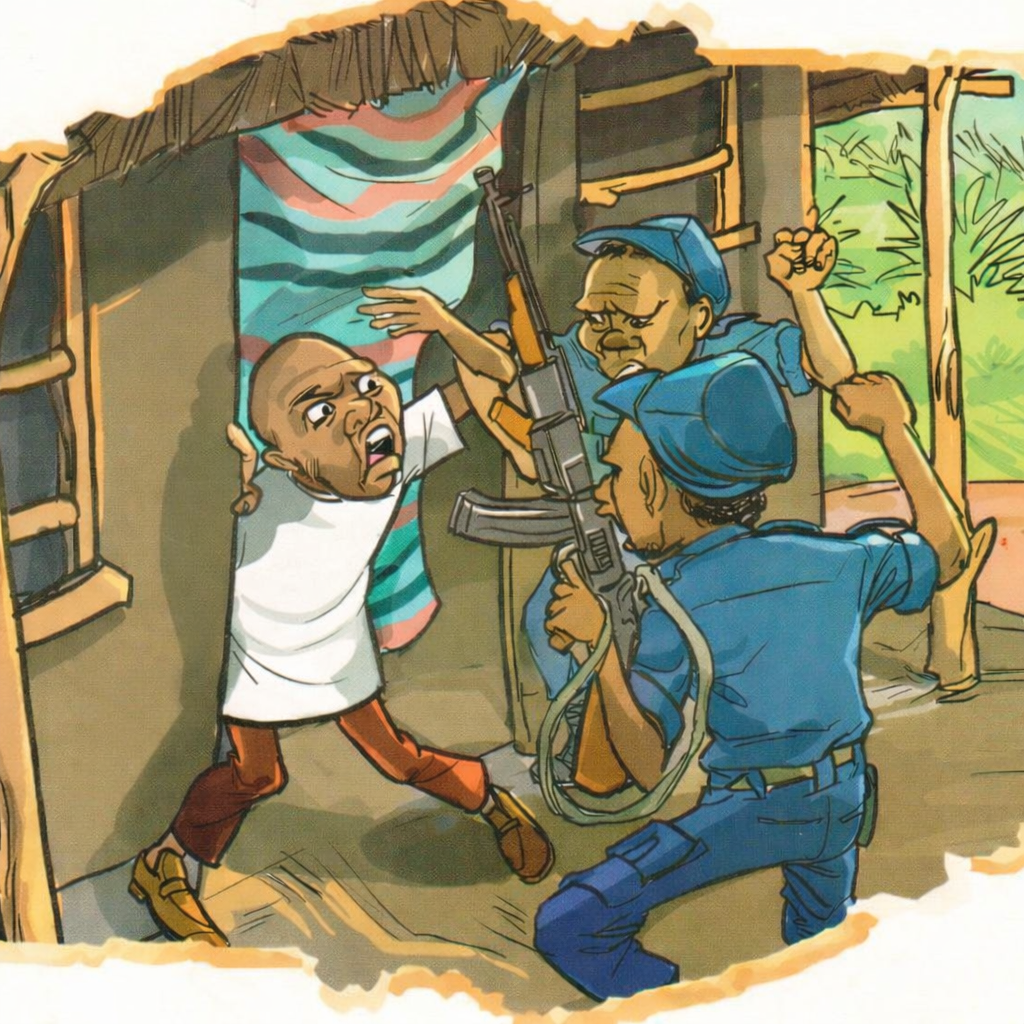
By Witness Radio Team
It was a bolt from the blue—an unimaginable shock that arrived without warning. Close to six years on, its consequences have hardened into everyday reality, and justice remains elusive. That shock was felt most acutely in Pangero Chiefdom, where a once-stable community is still grappling with the aftermath of an abrupt and forceful military land takeover, highlighting ongoing land injustice.
The Pangero Chiefdom of the Alur Kingdom is located in Koch Parish, Nebbi Sub-County, Nebbi District, in north-western Uganda, north of Lake Albert and near the Uganda–DR Congo border. For decades, families here depended on the land for farming, food, and cultural continuity, with traditions and livelihoods deeply tied to the soil.
The wounds from the land loss remain raw, and the community continues to demand the return of their land and justice for their suffering.
Over 100 families across Aleikra, Kochi Central, and Panyabongo villages have been directly impacted by the land grab, according to the Traditional Chief.
In Uganda, land is often taken from people with low incomes through a system lacking explicit legal protections, raising questions about the legitimacy and fairness of land seizures, especially when communities are evicted without free, prior, and informed consent.
“When forces such as the Army occupy community land, people are always afraid even to ask why they are settling or why they have settled on their land. It becomes difficult to question men in uniform,” said Mr. Ulama Dison Duke Ukerson, the Traditional Chief of Pangero Chiefdom, in an interview with Witness Radio Uganda.
In March 2020, hell broke loose in the chiefdom as residents woke up to find UPDF soldiers camping on their land. Many initially thought the soldiers were temporarily stopping over on their way elsewhere. However, after some time, it became clear that the force was not moving on but instead settling in the lush environment of Pangero.
When confronted, residents claim the soldiers explained that they were taking refuge, with Zombo District as their ultimate destination.
“They have stayed there for now, close to six years. Initially, they told us they would take refuge for a few days and later move to the Zombo District. Some left, but others remained. We initially thought they were staying for a few weeks. Since then, they have stayed on our land without paying anything,” said Gladys Budongo, an elder in the chiefdom, in an interview with Witness Radio.
Forty-one-year-old Doreen Kawambe, a resident of Aleikra Village, is among those who lost part of their land during the takeover. Doreen said she originally owned seven acres inherited from her father.
“When the UPDF came, they seized three acres of our land. The remaining land is difficult to access. My family was left with only four acres. We can no longer go to the forest for water, and the areas we used to cultivate are now guarded. Food has become a serious problem,” she said.
Before the takeover, Doreen’s land provided enough income to sustain her family. “From one acre, I could earn up to 800,000 shillings (about 224.94 USD) or more in a season. Now, with less land and limited access, survival is tough.” She explained.
Gladys Budongo, a 61-year-old widow, also lost her late husband’s five-acre family land, which is part of a larger ancestral estate that the family has occupied for decades.
Amid community resistance and ongoing efforts to reclaim their land, the Army conducted surveys and valuations in 2023 and 2024. However, elders like Gladys Budongo claim the process was irregular and imposed without community consent, highlighting the need for legal accountability.
“Koch Land Committee also pressured the community to accept the survey exercise. Although it was supposed to represent the local population, it was not democratically elected by consensus, as is traditional in Alur communities, and instead consisted of an imposed elite who pressured us to surrender our land,” she said.
According to elders interviewed by Witness Radio, during an announcement meeting on September 19, 2025, facilitated by officials from the UPDF Land Board, the national surveyor, and the Commander of Koch Army Barracks, community members were compelled to sign documents accepting meager compensation for land seized five years earlier.
“Residents whose land was surveyed were given two choices: either sell their land to the Army by accepting the compensation offered or refuse the UPDF’s offer,” the area chief said, adding that officials barred him from speaking or defending his chiefdom.
“Leaders in the area are rough when we oppose this land grab. Even in meetings, they don’t allow me to speak. On the few occasions I attended and got silenced,” he said.
Mr. Opio Okech, a community land defender, blamed the government and the Army for forcefully occupying people’s land.
“The forced decision to sell land to the government is similar to eviction because people have no say. The problem started when the government entered the land, stayed for a long time without proper notice, and then decided it would not leave and instead offered compensation. It looks, smells, and walks like a forceful eviction,” he said.
Despite promises of compensation, Gladys and others say they have not received any payment.
“They forced people to sign documents, but nobody has been paid yet. Some were threatened with arrest if they protested,” she said.
Koch Resident District Commissioner (RDC) Mr. Abak Robert, representing the Office of the President, denies allegations of land grabbing, stating the land was acquired on a willing buyer, willing seller basis, which raises questions about the transparency and legality of the process.
“I personally participated in monitoring the project-affected persons. People who accepted giving land to the UPDF were properly valued, accepted the figures, and signed willingly,” he said in an interview with Witness Radio.
When asked how this arrangement worked, given that compensation was considered only after the land had already been forcibly taken, he responded that the government would soon pay the affected people.
“Compensation is expected soon, and the community is agreeable to receiving monetary payment,” the RDC added, noting that the land currently occupied by the UPDF in Pangero Chiefdom spans more than 242.811 hectares.” He added.
However, affected residents insist that the survey and valuation process involved intimidation and coercion.
Capt. David Kamya, the 4th Division Public Information Officer based in Gulu District, declined to comment about the UPDF’s improper land acquisition upon being contacted by Witness Radio.
“How sure are you that the UPDF grabbed the land? I was told that if someone wants to talk about such matters, they must be on the ground. Come, and we meet and see this physically,” he said before hanging up.
The consequences of the land seizure extend beyond economics. According to the chiefdom elders, families struggle to sustain livelihoods, children go hungry, and elders feel powerless in the face of military authority.
“People are afraid to speak out. We are threatened when we ask for justice. It feels like the community has no voice. The loss of ancestral land is also cultural. Trees, rivers, and open spaces that connected generations have been taken over, disrupting a way of life that has lasted centuries,” she added.
Nearly six years after the UPDF’s arrival, the Pangero Kingdom remains a community in limbo.
“We want someone to stand for us to stop them from taking our land or even buying it as they promise. They refuse to hear the elders’ voices and do whatever they want. We want our land back,” said the traditional chief, whose houses now accommodate soldiers.
Related posts:

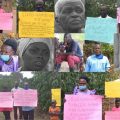 Will Uganda’s next government break the land-grabbing cycle?
Will Uganda’s next government break the land-grabbing cycle?
 Uganda’s plan to allow forceful takeover of private land stirs anger
Uganda’s plan to allow forceful takeover of private land stirs anger
 Ugandan army to punish soldiers for torturing Journalist in Kampala
Ugandan army to punish soldiers for torturing Journalist in Kampala
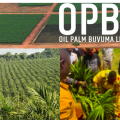 Nine (9) years and still counting: Buvuma residents still await compensation for land grabbed by the Oil palm project.
Nine (9) years and still counting: Buvuma residents still await compensation for land grabbed by the Oil palm project.

US-DRC Strategic Partnership Agreement Faces Constitutional Challenge in Court

Indigenous communities’ complaint against World Bank-linked Nepal Cable Car Project declared eligible for investigation.

The Witness Radio and Seed Savers Network Joint Radio program boosts Farmers’ knowledge of seed and food sovereignty.

Close to six years on, Pangero Chiefdom subjects still linger in pain after the government army’s forceful takeover of their ancestral land.

Will Uganda’s next government break the land-grabbing cycle?

Women environmental rights defenders in Africa are at the most significant risk of threats and attacks – ALLIED New report

Swedish pension fund drops TotalEnergies amid rising EACOP risks

Uganda moves toward a Bamboo Policy to boost environmental conservation and green growth.

Innovative Finance from Canada projects positive impact on local communities.
Over 5000 Indigenous Communities evicted in Kiryandongo District
Petition To Land Inquiry Commission Over Human Rights In Kiryandongo District
Invisible victims of Uganda Land Grabs
Resource Center
- Land And Environment Rights In Uganda Experiences From Karamoja And Mid Western Sub Regions
- REPARATORY AND CLIMATE JUSTICE MUST BE AT THE CORE OF COP30, SAY GLOBAL LEADERS AND MOVEMENTS
- LAND GRABS AT GUNPOINT REPORT IN KIRYANDONGO DISTRICT
- THOSE OIL LIARS! THEY DESTROYED MY BUSINESS!
- RESEARCH BRIEF -TOURISM POTENTIAL OF GREATER MASAKA -MARCH 2025
- The Mouila Declaration of the Informal Alliance against the Expansion of Industrial Monocultures
- FORCED LAND EVICTIONS IN UGANDA TRENDS RIGHTS OF DEFENDERS IMPACT AND CALL FOR ACTION
- 12 KEY DEMANDS FROM CSOS TO WORLD LEADERS AT THE OPENING OF COP16 IN SAUDI ARABIA
Legal Framework
READ BY CATEGORY
Newsletter
Trending
-

 MEDIA FOR CHANGE NETWORK2 weeks ago
MEDIA FOR CHANGE NETWORK2 weeks agoWomen environmental rights defenders in Africa are at the most significant risk of threats and attacks – ALLIED New report
-

 FARM NEWS2 weeks ago
FARM NEWS2 weeks ago200 farmers demonstrate at parliament, worried about new seed monopoly
-

 MEDIA FOR CHANGE NETWORK1 week ago
MEDIA FOR CHANGE NETWORK1 week agoEvicted from their land to host Refugees: A case of Uganda’s Kyangwali refugee settlement expansion, which left host communities landless.
-

 MEDIA FOR CHANGE NETWORK1 week ago
MEDIA FOR CHANGE NETWORK1 week agoWitness Radio and Seed Savers Network are partnering to produce radio content to save indigenous seeds in Africa.
-

 MEDIA FOR CHANGE NETWORK4 days ago
MEDIA FOR CHANGE NETWORK4 days agoIndigenous communities in Eastern Nepal accuse the World Bank’s Linked Cable Car Project of rights violations.
-

 MEDIA FOR CHANGE NETWORK6 days ago
MEDIA FOR CHANGE NETWORK6 days agoWhy govt is launching a comprehensive digital land registry
-

 MEDIA FOR CHANGE NETWORK3 days ago
MEDIA FOR CHANGE NETWORK3 days agoClose to six years on, Pangero Chiefdom subjects still linger in pain after the government army’s forceful takeover of their ancestral land.
-

 MEDIA FOR CHANGE NETWORK2 days ago
MEDIA FOR CHANGE NETWORK2 days agoThe Witness Radio and Seed Savers Network Joint Radio program boosts Farmers’ knowledge of seed and food sovereignty.

